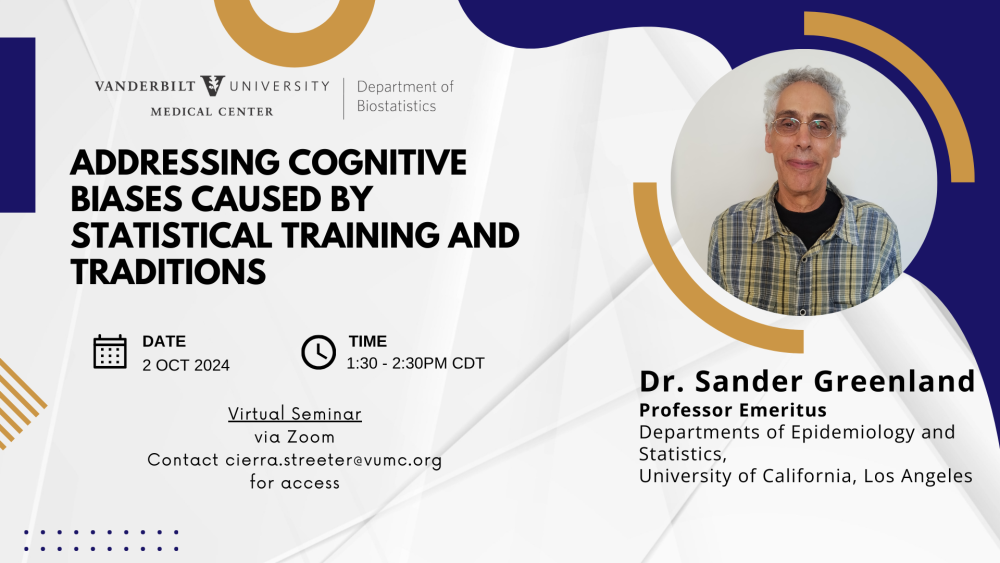
Abstract
Among key points discussed in recent articles and talks are:
- We need to learn how to systematically deal with and teach about cognitive biases, as done with mechanical bias sources like confounding, mismeasurement, and P-selection.
- These cognitive biases are large, pervasive, and societally important, yet overlooked by most methodologic texts and literature.
- Their coverage should displace many fine points of statistical methodology, which itself is a major source of cognitive biases.
This talk will cover some items from a list of topics for an ideal Statistics 1A:
- Accurate history and honest status of ideas
- Clear ordinary-language translation of misleading statistics "sales jargon"
- Causation of data patterns: circumstance and design vs "chance"
- The huge litany of misinterpretations and cognitive biases, including those caused by statistical training and traditions
- Formal statistics as crude AI
- Bayes-frequentist fusion via information
- Loss functions, sensitivity, and hedging
Some background references:
Greenland, S. 2017. The need for cognitive science in methodology. Am J Epidemiol 186, 639-645. https://academic.oup.com/aje/article/186/6/639/3886035
Rafi Z, Greenland S. 2020. Semantic and cognitive tools to aid statistical science: replace confidence and significance by compatibility and surprise. BMC Med Res Methodol 20, 244. https://bmcmedresmethodol.biomedcentral.com/articles/10.1186/s12874-020-01105-9
Greenland S. 2022. The causal foundations of applied probability and statistics. Ch. 31 in Dechter R, Halpern J, Geffner, H., eds. Probabilistic and Causal Inference: The Works of Judea Pearl. ACM Books no. 36, 605-624, https://arxiv.org/abs/2011.02677
Sign up to meet with Dr. Greenland after the presentation here.
Sander Greenland is Emeritus Professor of Epidemiology and Statistics at the University of California, Los Angeles, and Fellow of the American Statistical Association and the Royal Statistical Society. He has authored or coauthored over 500 articles in statistics, epidemiology, and medicine, with a focus on proper use and interpretation of statistical methods in observational studies.